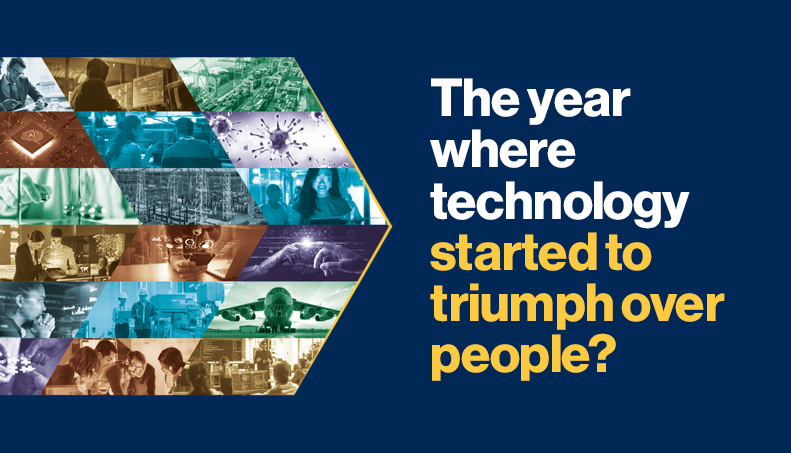Will 2023 be remembered as the year where technology started to triumph over people?

The BCI is pleased to launch its A Year in the World of Resilience Report 2023. This report explores the key themes seen across the resilience sector this year, which have been picked up and analysed in BCI research reports throughout 2023. It also looks ahead towards the shifting priorities for 2024.
The report forms conclusions from research findings from BCI reports which were published throughout 2023, together with survey responses and structured interviews with senior resilience professionals to provide a review of the year, as well as topics to consider for 2024.
Key areas explored in the report:
- The current strategic priorities for top management
- What did practitioners see in 2023 and expect for 2024?
- Is business continuity and resilience ready to embrace artificial intelligence (AI)?
- The changing attitudes towards standard business continuity practices
- What are the spending priorities for next year in business continuity and resilience?
Shifting strategic priorities
For practitioners, getting the support of senior leadership on critical issues is a key part of the puzzle when building resilience, as it can lead to increased resources and a growing appreciation for the issue throughout the organization. The BCI: A Year in the World of Resilience Report 2023 shows that cyber resilience is the top strategic concern for senior management, with respondents sharing how they expect to see this translated into increased resources and spending in 2024.
However, the shifting priorities of senior leadership means that some concerns have dropped down the table in terms of importance. Resources for supply chain resilience, for example, have waned after the increased attention seen throughout the COVID-19 pandemic. Survey respondents also highlighted the number of supply chain disruptions seen this year and expected next year, particularly as a result of global conflicts. Therefore, practitioners will be keen to see that the lessons learned from the pandemic continue to be acted upon; and a mindset of continuous improvement is fostered.
How is emerging technology changing business continuity and resilience?
The role of AI has been a key theme in BCI research this year, and this new report has highlighted the complex role of AI in business continuity and resilience settings. For those organizations embracing it, AI has the ability to automate and assist processes like the business impact analysis (BIA) as well as supporting training and exercising by providing a greater range and depth of scenarios. However, caution is still very much present, as most survey respondents were keen to stress the importance of retaining a human element in these processes.
Respondents also discussed the necessity of introducing guardrails so that the technology can be used responsibly. For now, regulation will be the watchword for many organizations, with some organizations waiting to see if upcoming regulations will mitigate the risk of introducing this emerging technology into their operations. With 39.6% of organizations expected to increase spending in AI next year, this is an area that will be watched with some anticipation.
Reinforcing human resilience
Another key element explored throughout the report is the underlying importance of the human aspects of resilience. Throughout this year’s BCI research, findings have shown the severe impacts of human illness on global supply chains, the role of human error in cyber resilience, and the consequences of a loss of talent and skills for organizations. This report serves to reinforce this essential aspect of resilience, to emphasise that this is not lost when considering the wider risk and threat landscape, and to showcase what organizations are doing to maintain a focus on human resilience.
This report has been sponsored by Riskonnect.
Download A Year in the World of Resilience Report 2023



